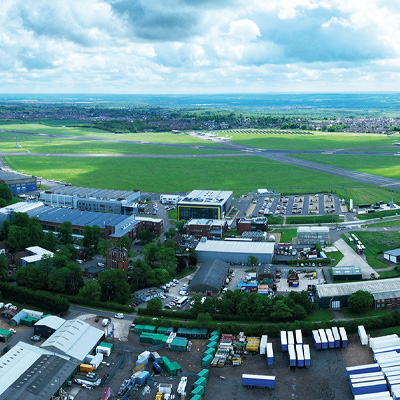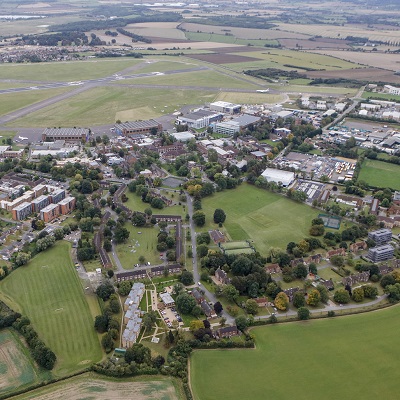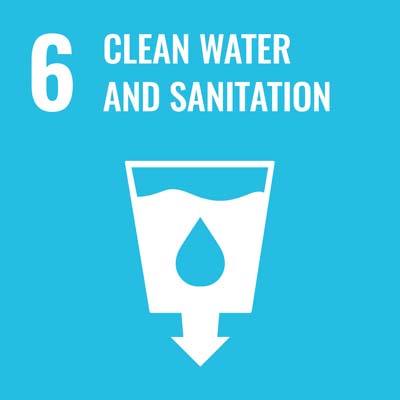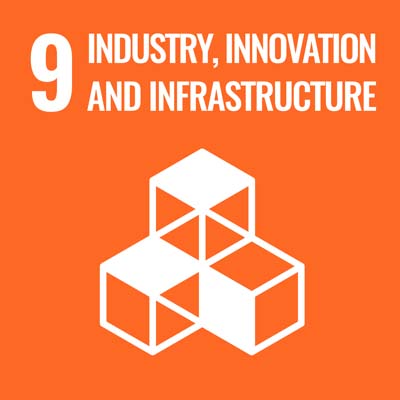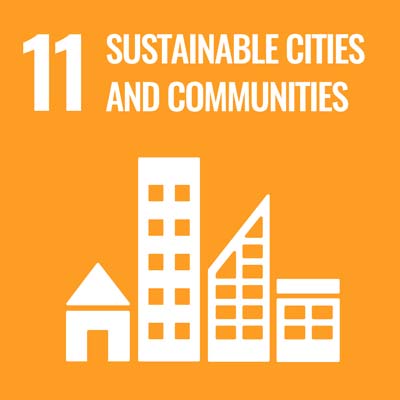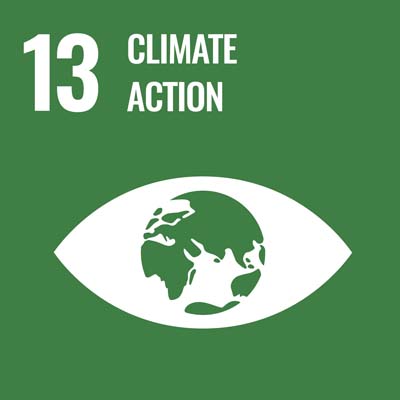Help shape a more resilient and sustainable future in Water and Wastewater
In a world where the pressures on and competition for water resources and services present immediate and long-term challenges, the water industry is constantly evolving to respond to climate change and water scarcity, and to transition to a sustainable model. However, a global shortage of water professionals trained to post-graduate level is delaying our collective response to these challenges . Our MSc in Water and Wastewater Processes is designed as a truly interdisciplinary course to equip you with the necessary skills to become the innovators, specialists, and knowledge integrators of tomorrow who will design, lead, and deliver transformative solutions and change agendas. This MSc offers two study pathways that allow you to tailor your studies to your needs and career prospects.
High value scholarships available:
Mister Gees Foundation Scholarship
Cranfield Merit Scholarships
Anglian Water Bursary
Cranfield India Scholarship
Cranfield Nigeria Scholarship
Cranfield Vietnam Scholarship
Upcoming webinars:
Thursday 5th June 2025 - Q&A session about the course
Overview
- Start dateFull-time: October, part-time: October
- DurationFull-time: one year, part-time: two-three years
- QualificationMSc, PgDip, PgCert
- Study typeFull-time / Part-time
- CampusCranfield campus
My time at Cranfield allowed me to build on my prior experience of working within the UK water industry. I had already worked in the industry for over 15 years as an electrical engineer, during my time, studying part-time for a Masters degree at Cranfield, I was able to understand much more deeply, the science and principles behind the solutions I had previously worked on, as well contribute much more strongly to the solutions that I have since helped to develop. Knowledge gained has been vital in comprehending a holistic understanding of individual treatment processes and how these processes come together to form an operational treatment works.
Cranfield opened a lot of doors for me. I got my job offer with Mott MacDonald, three months away from finishing the course. I believe the experience I got from Cranfield, and especially the group project helped me.
It is the best place because the interactions between students and lecturers are superb.
The MSc Water and Wastewater Engineering course has been challenging but also stimulating and exciting. The lectures are very interactive and engaging and oftentimes, there are even external presenters including Cranfield alumni, who deliver presentations on certain topics.
Your career and employability
Whether you want to work for an organisation in the private or public sector or be an independent developer, inventor, scientist, or creator, then this MSc will help you build on your existing knowledge and skills with advanced concepts in the management of water and wastewater systems.
Our graduates are employed by water companies, technology companies, regulators, consultancies, NGOs, local government, and in many other areas of the private and public sectors.
Course details
On both routes, you will be supported and guided by academic staff who are world-leading experts in their field and whose cutting-edge research directly informs our teaching to help us go beyond standard textbooks. Throughout the course you will cover theory, application and practice while working in our world-class facilities . Students learn about relevant challenges such as river health, net zero and resource recovery from a wide range of experts working across the sector. Two water and wastewater treatment site visits allow students to see conventional and novel technologies in the real world. Thesis projects tackle real-world challenges and are often sponsored and supported by water utility companies or other sector stakeholders.
Webinar: 22 May – Introduction to the Water and Wastewater Processes MSc course
The taught aspect of each of the two courses is composed of five core modules, two route modules, and one elective module.

Five core modules
Students enrolling on both routes will spend their first semester learning completing five core modules covering subjects such as; how the water sector is structured, what drives change and the development and adoption of new technologies, the fundamental principles that underpin treatment processes, chemical, physical, biological and engineering principles relevant to water and wastewater treatment, and the context, design and operation of established treatment processes and flowsheets.
Two route modules
After this, the students selecting the Engineering route go on to study Hydraulics & Pumping Principles, and Risk Asset Management while those selecting the Environmental Science route will study Environmental Water Quality and Water Catchments and Climate change.
One elective module
On completion of their selected route modules, all students have an opportunity to choose another elective – either Nature-based Solutions for Water and Wastewater, or Resource Recovery for Water and Wastewater.
After the taught modules you will go on to study a group project and then an individual thesis project.
Study part-time
A part-time master’s qualification is the perfect way to enhance your skills and knowledge, and access new professional opportunities and networks. They also enable personal development and allow you to explore your professional identity.
Our part-time master’s courses are typically of two to three years duration and are structured to fit around your work and other life commitments.
For further information about studying for our MSc part-time, please contact: Dr Kristell Le Corre Pidou at: k.s.lecorrepidou@cranfield.ac.uk
Informed by industry
The Water and Wastewater Processes MSc is supported by organisations from across the water sector, including water utilities, consultancies, regulators, and NGOs. They contribute to the programme through guest lectures, setting problem-based activities, webinars, hosting field trips, and sponsoring thesis projects. These interactions provide networking opportunities and give you a real-world perspective on the topics discussed in the classroom .
Accreditation
The MSc of this course is accredited by the Chartered Institution of Water and Environmental Management (CIWEM).
How to apply
Click on the ‘Apply now’ button below to start your online application.
See our Application guide for information on our application process and entry requirements.







